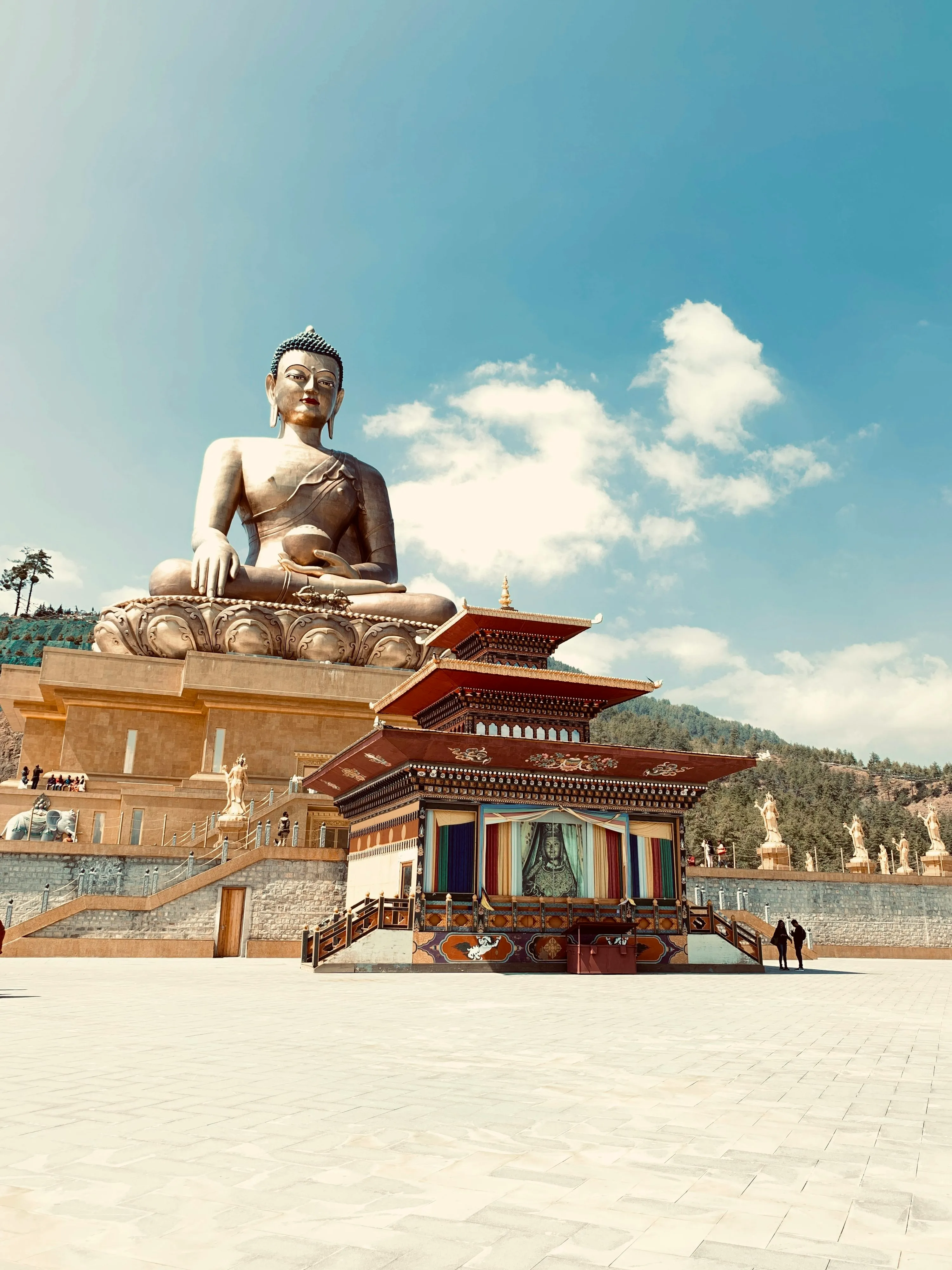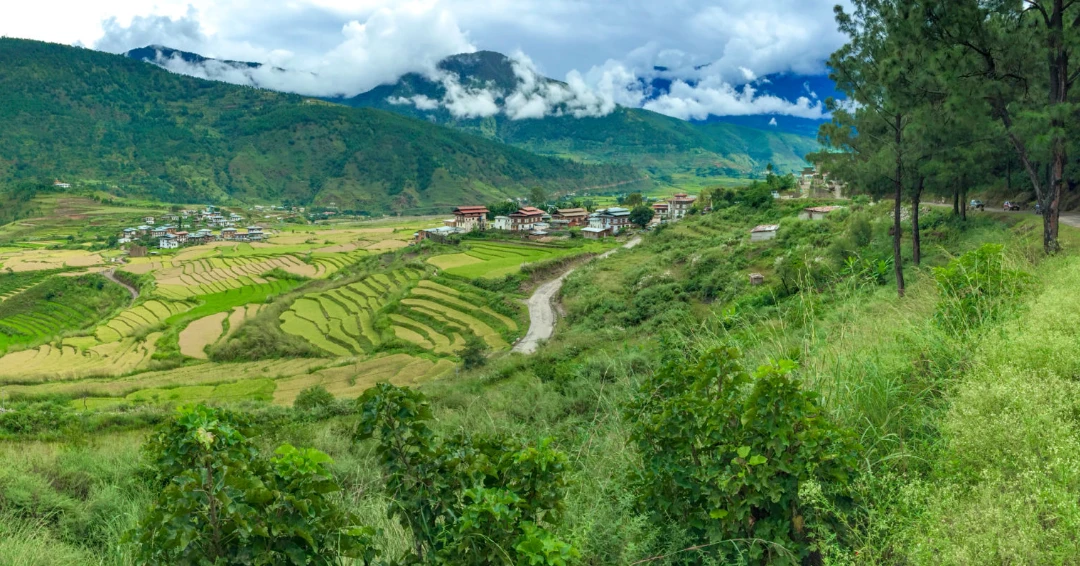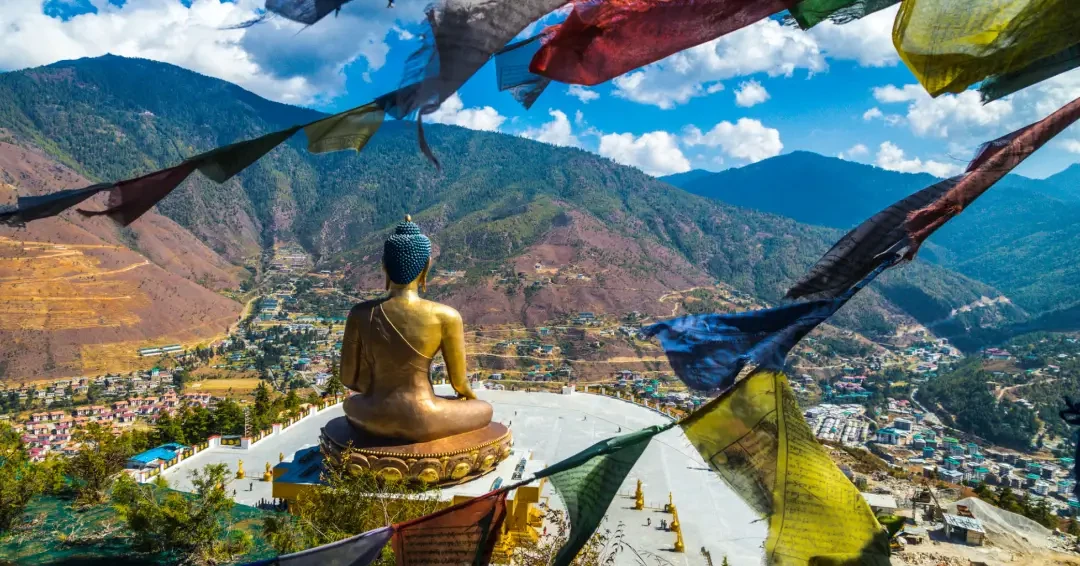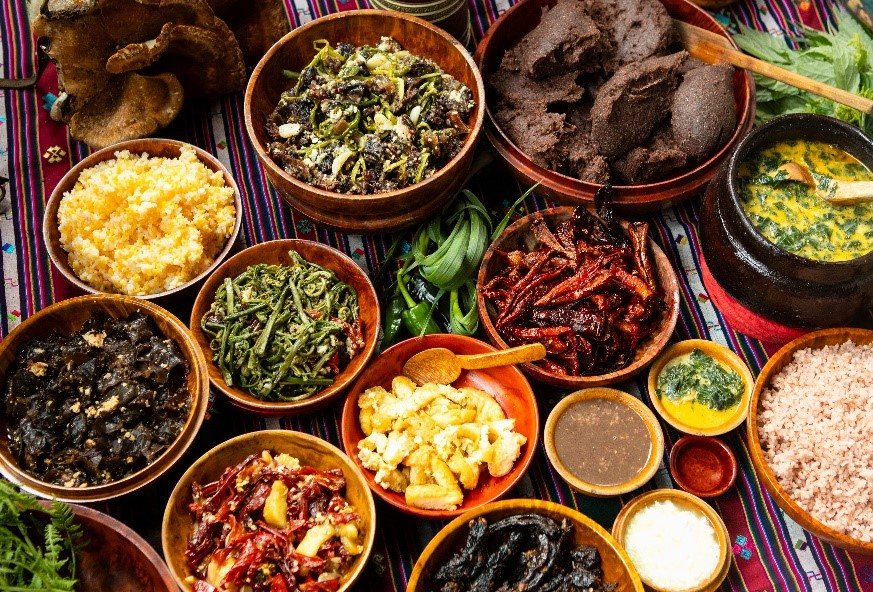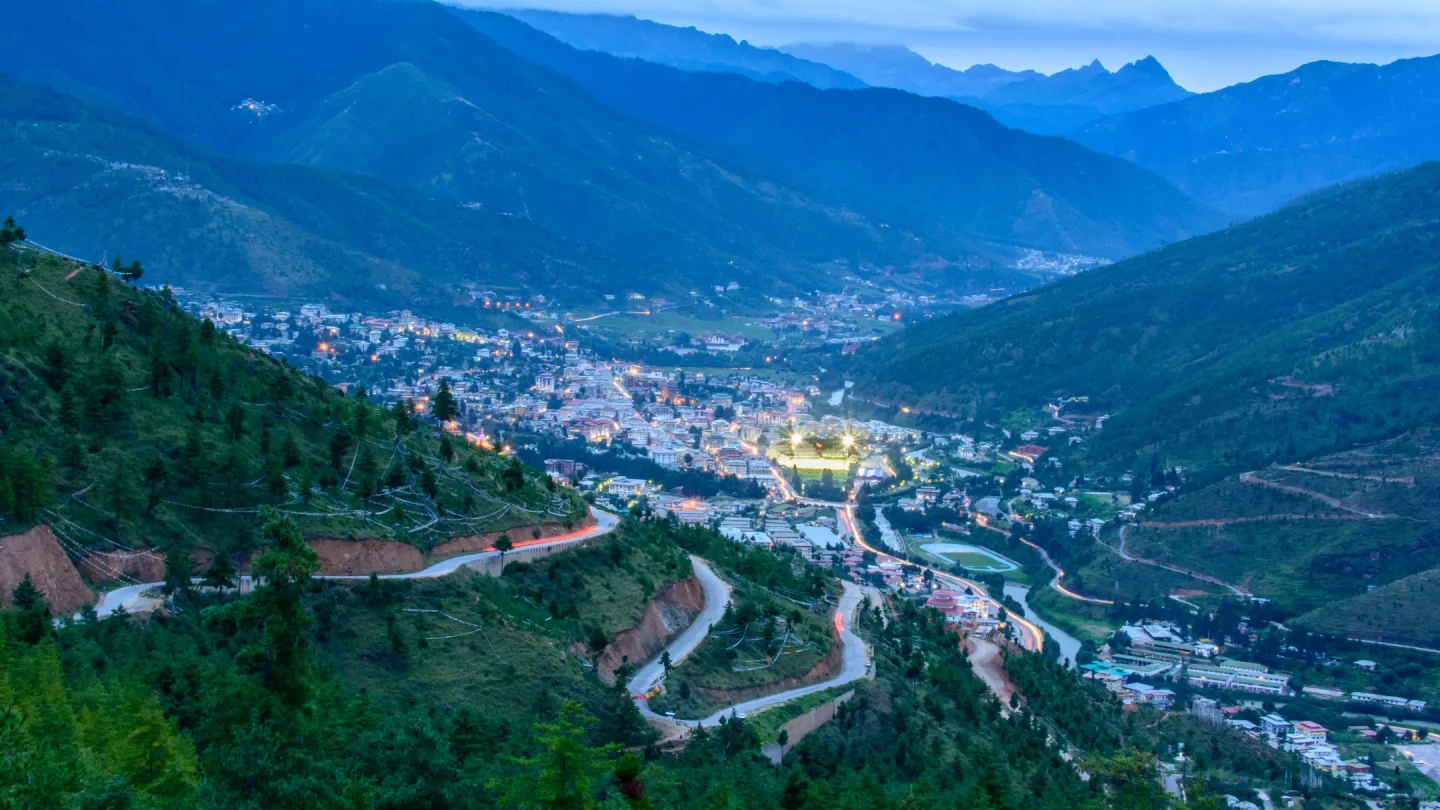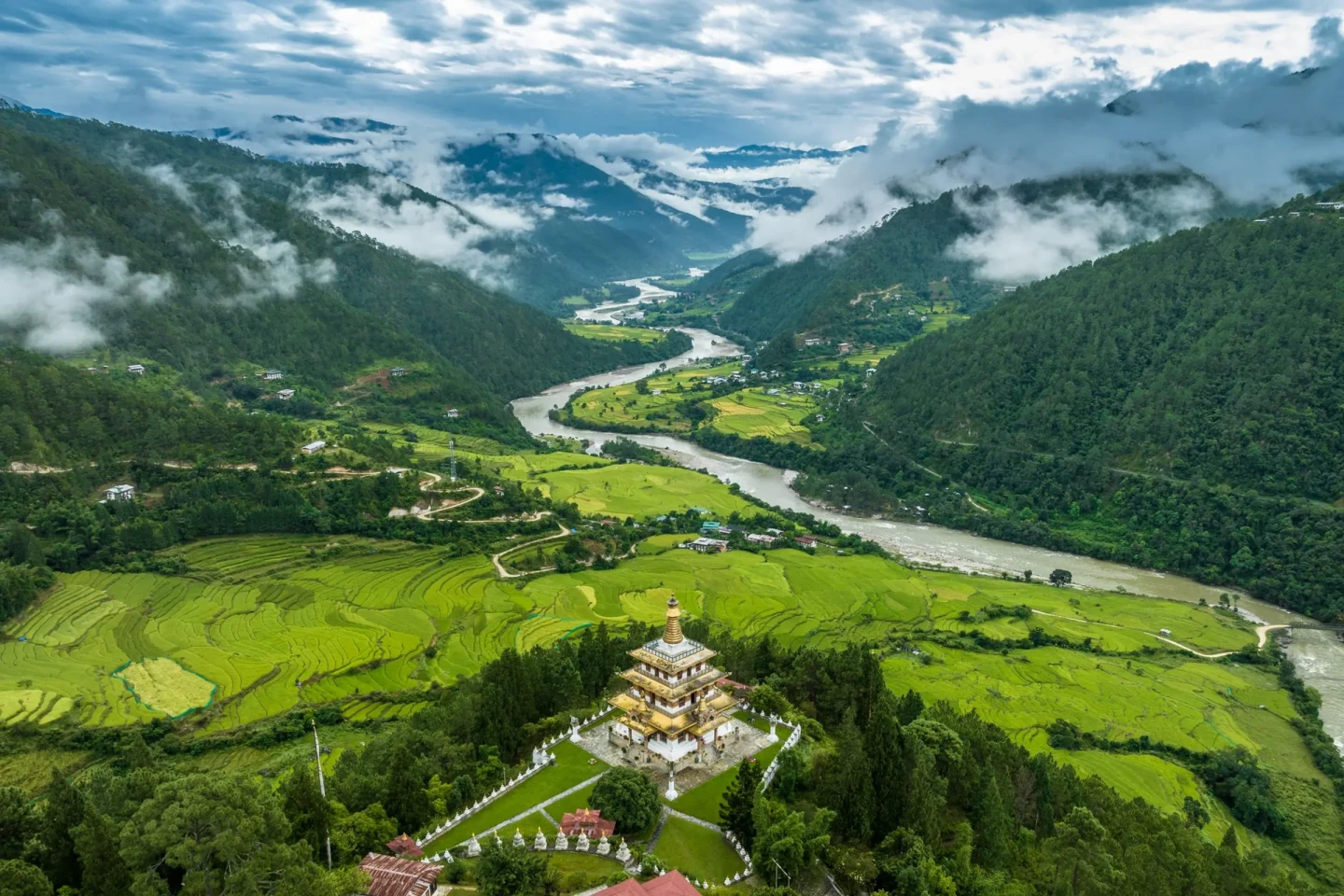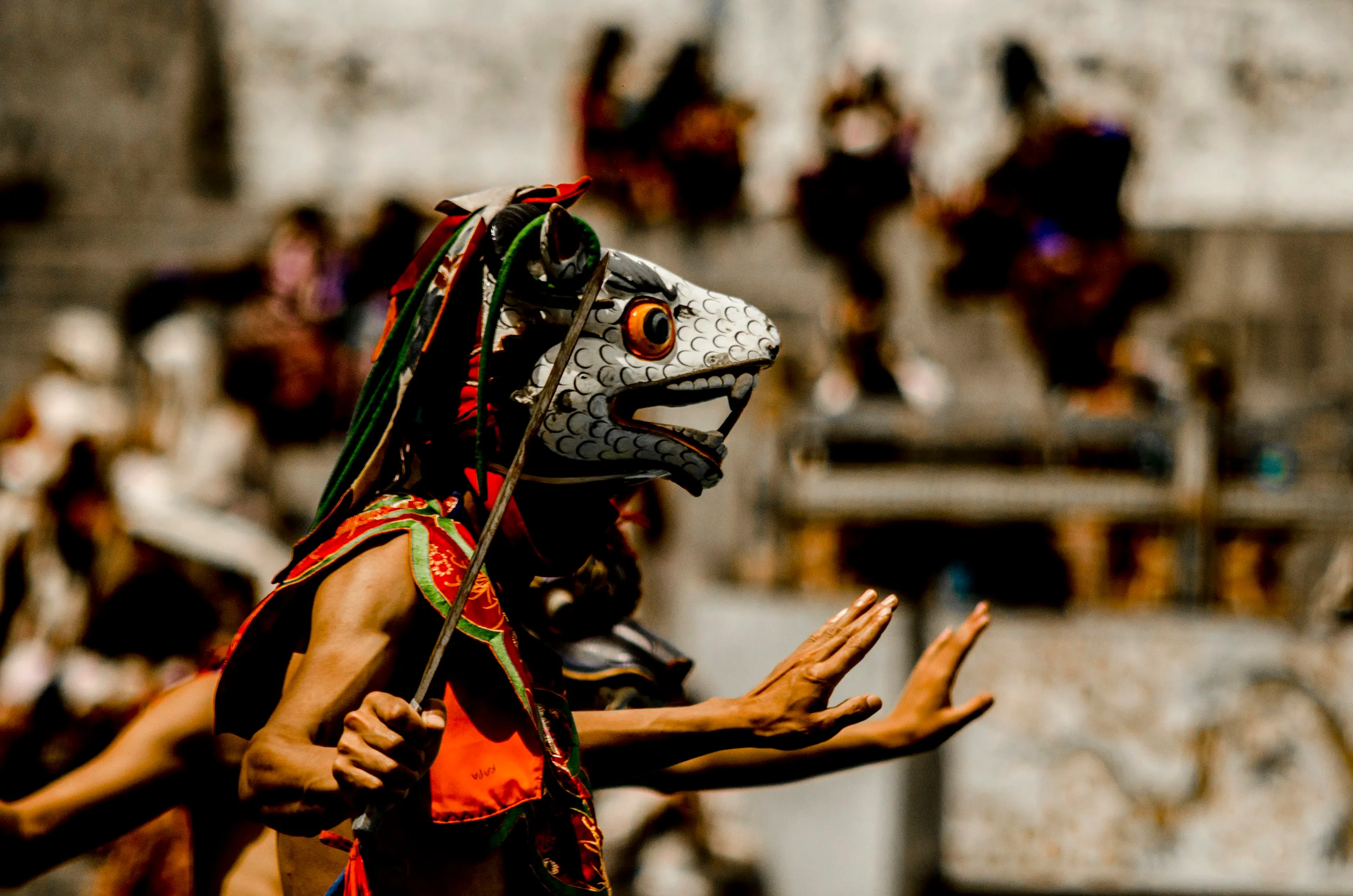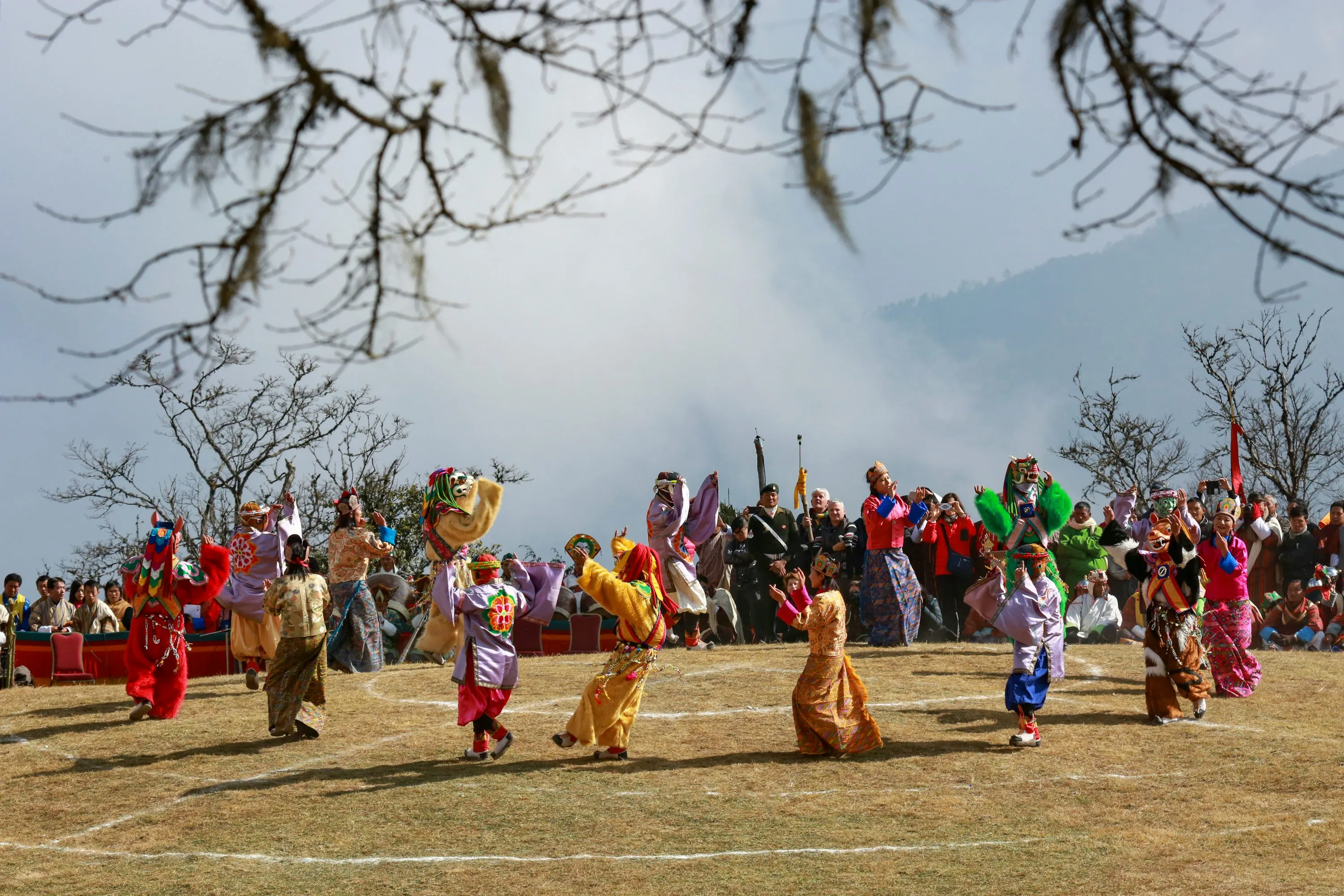Bhutan, the enigmatic kingdom nestled in the Eastern Himalayas, offers a profound escape into a world where ancient traditions harmoniously coexist with pristine natural beauty, making it an irresistible destination for Turkish travelers seeking authenticity beyond the familiar landscapes of Anatolia and the Mediterranean. Often dubbed the "Land of the Thunder Dragon," Bhutan captivates with its towering monasteries perched on cliffs, lush valleys teeming with rhododendrons, and a commitment to preserving its cultural heritage that echoes the deep-rooted historical pride found in Turkey. Diplomatic relations between Turkey and Bhutan were formally established on September 26, 2012, fostering a budding friendship marked by mutual respect for sovereignty and cultural integrity; Turkey's embassy in New Delhi is accredited to Bhutan, facilitating occasional exchanges in areas like education and disaster relief, such as Turkey's donation of $100,000 following Cyclone Aila in 2009. While Turkey bridges Europe and Asia with its bustling metropolises, Ottoman legacies, and a blend of secular and Islamic influences, Bhutan remains a serene Buddhist monarchy emphasizing spiritual well-being over material progress, measuring success through Gross National Happiness rather than Gross Domestic Product—a philosophy that contrasts with Turkey's dynamic economy yet shares a common thread in valuing community and resilience. For Turkish visitors unfamiliar with Himalayan terrains, Bhutan promises a realistic adventure of self-discovery amid challenges like high altitudes and remote paths, but its rewards lie in the genuine hospitality and untouched serenity that stand in stark contrast to the vibrant bazaars and coastal vibrancy of Turkey, inviting a deeper appreciation for diverse ways of life.
Visa and Entry Requirements
Bhutan's tourism is meticulously controlled to preserve its environment and culture, mandating that all foreign visitors, including those from Turkey, book their trips exclusively through licensed Bhutanese tour operators, ensuring a structured and sustainable experience rather than independent travel. For Turkish tourists, the visa process begins with selecting a reputable tour operator who handles the application on your behalf; you will need to provide a scanned copy of your passport, valid for at least six months beyond your intended stay, along with a recent passport-sized photo and proof of your tour booking, including flight details. The operator submits these to the Tourism Council of Bhutan, which issues a visa clearance letter typically within 72 hours, and this letter must be presented upon arrival at Paro International Airport or land borders for the actual visa stamp, which costs a non-refundable $40 fee. Payment for the entire tour, encompassing accommodations, meals, transportation, and guides, is wired in advance to the operator, who then remits the necessary fees to the government, effectively securing your visa as part of this integrated process. Central to Bhutan's entry policy is the Sustainable Development Fee (SDF), currently set at $100 per person per night for international visitors as of 2025, reduced from previous rates to encourage tourism while funding conservation, education, and healthcare initiatives; this fee significantly impacts overall pricing, adding to the minimum daily package rate, but children under six are exempt, and those aged 6-11 pay half, making family trips more feasible though still premium compared to budget travel in Turkey.
Travel Routes from Turkey to Bhutan
Traveling from Turkey to Bhutan involves careful planning due to the absence of direct flights, requiring transits through key Asian hubs that connect major Turkish cities like Istanbul, Ankara, or Izmir to Paro's challenging international airport. The most common route departs from Istanbul Airport (IST) via Turkish Airlines to Delhi (DEL) in India, a flight lasting about 6-7 hours, followed by a connection on Drukair or Bhutan Airlines to Paro (PBH), which takes around 2-3 hours; alternatively, flying to Bangkok (BKK) in Thailand or Kathmandu (KTM) in Nepal offers similar transit options, with Bangkok providing more frequent schedules and Kathmandu appealing for its cultural similarities to Bhutan. Drukair, Bhutan's national carrier, and Bhutan Airlines are the only operators servicing Paro, flying from these hubs with limited frequencies—often daily from Delhi but less so from others—necessitating advance bookings through your tour operator to align with visa requirements. Paro International Airport, one of the world's most demanding due to its high-altitude location surrounded by mountains, permits landings only in daylight and clear weather, leading to potential delays or diversions if conditions like fog or wind arise, so Turkish travelers should build flexibility into their itineraries and consider overnight stays in transit cities. Realistic expectations include booking flights at least 2-3 months ahead during peak seasons, with total journey times ranging from 12-20 hours including layovers, and costs varying from $800-1500 round-trip depending on the season and airline combinations, ensuring a seamless start to your Bhutanese adventure despite the logistical hurdles.
Best Time to Visit and Seasonality
Bhutan's diverse climate, shaped by its Himalayan topography, divides into four distinct seasons, each offering unique weather patterns, cultural events, and planning considerations that Turkish travelers should weigh against their preferences for comfort and activities. Spring, from March to May, brings mild temperatures averaging 15-25°C in valleys with blooming rhododendrons and clear skies ideal for trekking and sightseeing, though occasional showers may occur; this period aligns with festivals like the Paro Tshechu in April, featuring vibrant mask dances and religious rituals that provide a window into Bhutanese spirituality. Summer, June to August, introduces the monsoon with heavy rains, high humidity, and temperatures up to 30°C, making roads slippery and increasing landslide risks, yet it's perfect for witnessing lush greenery and lesser crowds, plus mushroom festivals in August that highlight local cuisine. Autumn, September to November, stands out as the prime season with crisp weather around 10-20°C, excellent visibility for mountain views, and major festivals such as the Thimphu Tshechu in September-October, drawing locals in traditional attire for communal celebrations. Winter, December to February, offers cold but dry conditions with temperatures dropping to 0-10°C and possible snow in higher altitudes, suited for cultural tours in lower regions and festivals like the Punakha Tshechu in February, though Turkish visitors accustomed to milder winters should prepare for chill. For Turkish tourists, the best months are March-May and September-November, balancing pleasant weather, fewer crowds than peak tourist influxes, and opportunities for hiking or festival immersion, allowing ample time to acclimate without the extremes of monsoon or winter affecting trip fluidity.
Money, Costs, and Payment Methods
Bhutan's currency, the Ngultrum (BTN), is pegged to the Indian Rupee at a 1:1 ratio, simplifying exchanges for travelers familiar with regional currencies, though Turkish visitors should primarily carry US Dollars for conversion at Paro Airport's foreign exchange desk or banks in major towns like Thimphu and Paro. ATMs are available in urban areas through banks like Bank of Bhutan and Bhutan National Bank, accepting international cards like Visa and Mastercard with potential fees, but reliability diminishes in remote regions, so withdrawing sufficient cash early is advisable to cover incidental expenses. Credit cards are increasingly accepted in upscale hotels, restaurants, and souvenir shops in tourist hubs, yet cash remains king for smaller vendors and tips, with Turkish travelers recommended to exchange Lira to USD before departure for better rates. Tour packages, mandatory for entry, typically include accommodations in 3-star hotels or better, all meals featuring local cuisine, internal transportation via private vehicles, English-speaking guides, and entrance fees, keeping daily costs structured around the SDF and minimum tariff; however, extras such as alcoholic beverages, bottled water beyond provided amounts, personal shopping, laundry services, and gratuities for guides and drivers—customarily $10-15 per day per person—are not covered, potentially adding $50-100 daily depending on preferences, ensuring a transparent yet premium travel experience aligned with Bhutan's sustainable ethos.
Health, Safety, and Travel Insurance
Health considerations in Bhutan revolve around its high-altitude terrain, where elevations from 1,000 to over 4,000 meters pose risks of acute mountain sickness, characterized by headaches, nausea, and fatigue, particularly for Turkish travelers unaccustomed to such heights; preventive measures include gradual ascent, hydration, and medications like acetazolamide if prescribed by a doctor. Medical facilities are basic in rural areas but adequate in Thimphu and Paro, with Jigme Dorji Wangchuck National Referral Hospital offering emergency care, though evacuation to India or Thailand may be necessary for serious issues, underscoring the need for comprehensive travel insurance covering high-altitude activities and medical repatriation. Recommended vaccinations include Hepatitis A, Typhoid, Tetanus, and possibly Rabies due to stray dogs, while malaria and dengue risks are low but present in southern borders, warranting insect repellent; the UK and US governments advise routine shots and consulting a travel clinic 4-6 weeks prior. Bhutan boasts exceptional safety with negligible crime rates, attributed to its close-knit communities and Buddhist principles, allowing solo explorations in towns, yet minor risks like uneven paths, stray animals, and occasional petty theft in markets require vigilance. Travel insurance is indispensable, not just for health but also for trip cancellations amid weather disruptions, with policies from reputable providers ensuring peace of mind in this remote paradise.
Cultural Etiquette and Social Expectations
Bhutanese society, steeped in Vajrayana Buddhism, emphasizes respect, humility, and harmony, requiring Turkish visitors to adapt behaviors that might differ from the more expressive Mediterranean customs to foster meaningful interactions. In temples and monasteries, remove shoes and hats before entering, dress modestly covering shoulders and knees—women in long skirts or pants, men avoiding shorts—and speak softly, avoiding physical contact with monks or pointing at sacred images, instead using an open palm gesture; photography is often restricted inside, so seek permission to honor the sanctity. Socially, greet with a slight bow and "Kuzuzangpo la" (hello), offering or receiving items with both hands or the right hand supported by the left as a sign of respect, contrasting perhaps with Turkey's warm handshakes but aligning in valuing politeness. Patience is key in conversations, where direct confrontation is avoided in favor of indirect communication, and humility shines through not boasting but listening actively; Turkish travelers might adjust from lively debates to a calmer demeanor, appreciating the emphasis on collective well-being over individualism. Public displays of affection are discreet, and modesty extends to avoiding revealing clothing in villages, while joining in simple acts like sharing butter tea reinforces bonds, ensuring your presence enriches rather than disrupts the cultural fabric.
Connectivity, SIM Cards, Internet Access
Connectivity in Bhutan, while improving, remains variable due to its mountainous landscape, with Wi-Fi widely available in hotels and cafes in Thimphu and Paro, though speeds can be slow and unreliable in remote areas, prompting Turkish travelers to manage expectations for seamless online access. Local SIM cards from providers like B-Mobile (Bhutan Telecom) and TashiCell are essential for mobile data and calls, easily purchasable at Paro Airport or town outlets upon arrival with your passport and visa; tourist packages start at around 200-500 BTN for a week, including 2-5 GB of data, voice minutes, and validity up to 30 days, with TashiCell often praised for better coverage in valleys. Activation is straightforward, and top-ups via scratch cards or apps keep you connected, though signal drops in high altitudes during treks necessitate offline maps or informing family of potential blackouts. Turkish apps like banking or social media function normally without restrictions, but a VPN is useful for secure browsing on public networks, especially if accessing sensitive sites; overall, embracing occasional disconnection aligns with Bhutan's mindful pace, allowing deeper immersion in the surroundings.
Language and Communication
Dzongkha serves as Bhutan's official language, a Tibeto-Burman tongue with regional dialects like Sharchopkha in the east, but English is prevalent in tourism, education, and government, easing communication for Turkish travelers whose English proficiency varies. Licensed guides, mandatory for tours, are fluent in English and trained to explain cultural nuances, though Turkish-speaking guides are rare and not commonly available, requiring advance requests through operators for potential arrangements or multilingual support. In hotels, restaurants, and shops catering to tourists, staff converse comfortably in English, while rural interactions may rely on simple phrases or gestures; learning basics like "thank you" (kadinche la) or "hello" fosters goodwill. For those with limited English, visual aids, translation apps like Google Translate (with offline Dzongkha packs), or hiring interpreters via your guide can bridge gaps, ensuring misunderstandings are minimal in this hospitable nation where non-verbal cues like smiles and bows convey much.
Packing and Preparation Advice
Packing for Bhutan demands versatility to handle its fluctuating Himalayan climates, from balmy valleys to chilly peaks, advising Turkish travelers to layer clothing for adaptability across seasons and altitudes. Essential attire includes breathable long-sleeved shirts, trousers, and modest dresses for cultural sites, paired with a waterproof jacket, fleece layers, and thermal underwear for evenings or higher elevations where temperatures can dip below 10°C; sturdy hiking boots with good grip are crucial for uneven trails, alongside comfortable walking shoes for towns, and don't forget a warm hat, gloves, and scarf for winter visits or treks. Personal items should encompass sunscreen, lip balm, and insect repellent for sunny days and buggy lowlands, plus a reusable water bottle to stay hydrated amid altitude challenges; medications like pain relievers, anti-diarrhea pills, altitude sickness remedies, and personal prescriptions are vital, with a first-aid kit including bandages and antiseptics. Power adapters for Type D, F, or G sockets (220-240V), a universal charger, and portable battery pack address occasional outages, while binoculars for wildlife spotting, a journal for reflections, and cash in small denominations complete the list, ensuring preparedness for Bhutan's unpredictable weather and remote adventures without excess baggage.
Bhutan’s Unique Tourism Philosophy
Bhutan's tourism philosophy is intrinsically linked to its pioneering concept of Gross National Happiness (GNH), a holistic metric prioritizing citizens' well-being across psychological, cultural, environmental, and economic dimensions over mere GDP growth, shaping policies that favor mindful development and limited visitor numbers. Introduced by King Jigme Singye Wangchuck in the 1970s, GNH guides the "high value, low volume" approach to tourism, requiring pre-booked tours and the SDF to ensure revenues support free education, healthcare, and conservation while minimizing cultural dilution and ecological strain. This cautious stance limits modernization, preserving traditional architecture, dress codes, and festivals untouched by mass commercialization, allowing Turkish travelers to experience authentic Bhutanese life rather than staged attractions. By capping infrastructure like roads and hotels, Bhutan protects its 70% forest cover and carbon-negative status, preferring quality interactions that educate visitors on sustainability, ultimately fostering a deeper understanding of why the kingdom opts for spiritual fulfillment and environmental stewardship over unchecked expansion.
Mindset and Expectations for Visitors
Adjusting your mindset for Bhutan involves embracing a slower rhythm of life that contrasts with Turkey's energetic urban pulse, where time unfolds deliberately amid limited infrastructure and a focus on introspection over convenience. Expect modest accommodations in family-run hotels or eco-lodges with basic amenities like hot water and Wi-Fi, rather than opulent resorts, and transportation via winding mountain roads that may take hours for short distances, encouraging patience as part of the journey's charm. Nightlife is virtually absent, with evenings centered on stargazing or cultural storytelling instead of clubs or shopping malls, and luxury retail is scarce, shifting emphasis to nature hikes, monastery visits, and spiritual retreats that nourish the soul. Turkish travelers should anticipate the absence of fast-paced entertainment, viewing these elements as opportunities for rejuvenation in a land where happiness derives from simplicity, community, and harmony with the environment, ultimately leading to a transformative experience far removed from material pursuits.
Food and Dining Culture
Bhutanese cuisine reflects the kingdom's agrarian roots and Himalayan influences, characterized by bold, spicy flavors from fresh chilies, fermented cheese, and simple staples that embody hospitality and communal sharing in every meal. Signature dishes like ema datshi—a fiery stew of chilies simmered in cheese sauce—dominate, often paired with red rice, a nutty grain unique to Bhutan, or momos (dumplings stuffed with meat or vegetables), evoking similarities to Turkish mantı but with a spicier twist; pork, beef, or yak feature prominently in stews like phaksha paa, while vegetarians enjoy datshi variations with mushrooms or potatoes. Dining is a social ritual, typically family-style with multiple courses served on low tables, where hosts generously refill plates as a gesture of warmth, and butter tea (suja), a salty brew of tea leaves, butter, and salt, accompanies meals for its warming properties in cold climates. Alcohol, such as locally brewed ara (rice wine) or beer, is enjoyed moderately during festivals, underscoring moderation in Buddhist culture, while Turkish palates might need adjustment to the heat but will appreciate the emphasis on fresh, organic ingredients and the role of food in forging bonds, making each meal a cultural immersion.
Festivals, Religion, and Sacred Places
Religion permeates every aspect of Bhutanese life through Vajrayana Buddhism, where sacred sites like dzongs (fortress-monasteries) and lhakhangs (temples) serve as living centers of worship, education, and community, offering Turkish visitors profound insights into a faith that integrates daily routines with spiritual practices. Festivals, known as Tshechus, honor Guru Rinpoche with elaborate mask dances, cham, performed by monks in colorful costumes depicting moral tales, held annually at dzongs like Paro or Thimphu, fostering unity and merit-making among attendees dressed in traditional gho and kira. At these events and sacred places, conduct rules include clockwise circumambulation of stupas, silent reverence inside shrines, and prohibitions on touching altars or speaking loudly, ensuring respect for the divine; such experiences deepen understanding of Bhutan's cultural tapestry, where religion isn't compartmentalized but woven into festivals' joyous energy and sacred sites' serene ambiance, enriching travelers with lessons in compassion and impermanence.
Hidden Challenges and Practical Inconveniences
While Bhutan's allure lies in its unspoiled authenticity, travelers encounter subtle challenges that test patience but ultimately enhance the adventure, such as slow service in restaurants where meals are prepared fresh, reflecting a unhurried lifestyle rather than inefficiency. Itinerary changes may arise from weather-dependent flights or road closures due to monsoons, with winding, narrow paths prone to landslides demanding flexible mindsets; power outages, common in rural areas from hydroelectric dependencies, add a rustic touch, encouraging candlelit evenings that evoke simpler times. These inconveniences, like occasional hot water shortages or bumpy drives, stem from Bhutan's commitment to minimal development, framing them as integral to its charm—opportunities to practice mindfulness and appreciate the kingdom's deliberate pace, turning potential frustrations into memorable stories of resilience.
Shopping and Souvenirs
Shopping in Bhutan centers on artisanal treasures that showcase the kingdom's craftsmanship, with handwoven textiles like kira fabrics in vibrant patterns symbolizing cultural identity, available at markets in Thimphu or Paro where bargaining is polite and understated, starting with a smile and modest haggling rather than aggressive negotiation. Crafts such as wooden masks, prayer wheels, and thangka paintings—intricate Buddhist scrolls—make meaningful souvenirs, often sourced from cooperatives ensuring authenticity and fair trade; incense from local herbs or jewelry with turquoise and coral accents evoke spiritual essence, while avoiding mass-produced items preserves ethical shopping. Without duty-free malls or high-end brands, focus on weekend markets for organic honey, red rice, or woven baskets, where prices reflect handmade quality, and verifying certifications guards against fakes, turning purchases into lasting connections to Bhutan's heritage.
Altitude Awareness and Physical Preparedness
Altitude in Bhutan varies dramatically, affecting individuals differently with symptoms like shortness of breath or dizziness emerging above 2,500 meters, necessitating awareness and preparation for Turkish travelers new to such environments. Common signs include headaches and fatigue, mitigated by acclimatization—spending initial days in lower Paro (2,200m) before ascending to Thimphu (2,300m) or higher treks—along with hydration (3-4 liters daily), avoiding alcohol, and light meals to aid oxygen absorption. Physical readiness involves pre-trip cardio exercises like hiking or stair climbing to build stamina, consulting doctors for underlying conditions, and carrying remedies like ibuprofen; during activities, pace yourself, ascending no more than 500 meters daily, ensuring safe enjoyment of Bhutan's lofty wonders.
Security, Safety, and Emergency Information
Bhutan's reputation as one of the safest destinations is well-earned, with low crime bolstered by strong community ties and law enforcement, allowing Turkish travelers to explore confidently while respecting local laws against drug possession or defacing religious sites, which carry strict penalties. Petty theft is rare but possible in crowds, so secure valuables; emergency contacts include police at 113, ambulance at 112, and fire at 110, with tour guides facilitating assistance. For Turkish citizens, consular support comes via the Turkish Embassy in New Delhi (+91-11-2419-8000), as no direct mission exists in Bhutan, emphasizing insurance for emergencies and adherence to customs like no tobacco imports beyond limits, ensuring a secure visit.
Photography and Drones
Photography in Bhutan captures its stunning vistas and festivals, but rules protect sacred spaces, prohibiting shots inside monasteries or of certain religious artifacts without permission, while respectful approaches to locals—asking consent before photographing people—honor privacy. Drones are strictly regulated and generally prohibited for tourists to safeguard sensitive areas like government buildings and wildlife zones, requiring special permits rarely granted; focus instead on ground-level ethics, avoiding flashes in temples and using discretion at events, preserving the kingdom's sanctity.
What Bhutan Does Not Have
Bhutan consciously eschews elements of modern globalization to maintain its unique identity, lacking skyscrapers that would mar its scenic horizons, fast-food chains like McDonald's or KFC to uphold traditional diets and discourage animal slaughter, casinos that contradict Buddhist principles of non-greed, and sprawling shopping centers favoring local crafts over consumerism. This absence underscores Bhutan's charm, prioritizing spiritual and environmental purity over commercial excess, offering Turkish travelers a refreshing contrast to urban conveniences.
Important Questions to Ask Before Booking a Tour
Before committing to a Bhutanese tour operator, Turkish travelers should inquire thoughtfully to ensure alignment with expectations, starting with questions about the guide's qualifications and experience—such as their fluency in English, knowledge of history, and ability to accommodate special requests like Turkish cultural explanations—to guarantee an informative journey. Delve into itinerary flexibility, asking how changes due to weather or personal interests are handled, and specifics on accommodations, including room types, locations, and amenities like Wi-Fi or heating, to match comfort levels. Food preferences warrant discussion, querying about dietary options for halal, vegetarian, or spice adjustments, and inclusion of meals beyond basics; emergency protocols are crucial, so ask about medical support, evacuation plans, and insurance requirements. Connectivity matters, so confirm if SIM cards can be arranged upon arrival and any app restrictions; language support, like multilingual resources, should be clarified for non-English speakers. Finally, address tipping customs—typically $10-15 daily for guides—and overall inclusions versus extras, fostering transparency for a seamless experience.
Conclusion
In reflection, Bhutan stands as a rare sanctuary for Turkish travelers yearning for cultural profundity, unspoiled natural splendor, and spiritual tranquility, diverging from fast-paced or commodified voyages to offer instead a path of introspection and genuine connection, where the pursuit of happiness transcends borders and enriches the soul enduringly.




